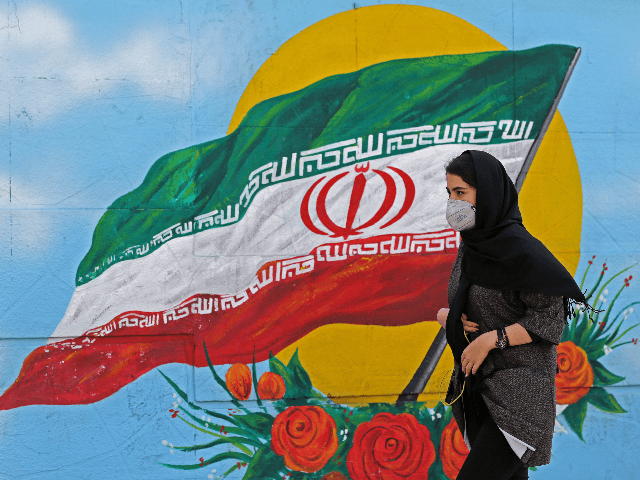Iranian Health Minister Saeed Namaki applauded his country in a post Monday on Twitter, claiming that Iran – among the countries with the highest coronavirus infection and death rates in the world – “outperformed the most powerful countries” in the world, presumably among them the United States and China.
The Iranian government claims that, at press time, it had documented 98,647 cases of Chinese coronavirus cases in the country. Among those, Tehran claims 6,277 people have died. These numbers have been the source of much controversy, however, as local officials have repeatedly questioned Tehran’s numbers and journalists have noted that the sum of regional coronavirus case numbers is much higher than the national number. The dissident National Council of Resistance of Iran (NCRI), which has kept its own tally of coronavirus figures based on intelligence from within the country, claims nearly 40,000 people have died since the outbreak began in the holy city of Qom.
Iranian officials tasked the Islamic Revolutionary Guard Corps (IRGC), a U.S.-designated terrorist organization, with national coronavirus response. The IRGC claimed to be working on a vaccine against the Chinese coronavirus in March, despite being an armed criminal gang with no known history of pharmaceutical development.
“By God’s grace and with the sacrifices made by my colleagues, we have outperformed the most powerful countries in the fight against coronavirus,” Namaki posted on Twitter, according to Iran’s Tasnim News Agency. Namaki noted that Iran had to contend with a “financial crunch” – an attack on the U.S. sanctions placed on the country in response to its repeated violations of international law and, specifically, the 2015 Iranian nuclear deal – and has fought the virus with a much smaller budget than those “who have spent billions of dollars.”
Elsewhere this weekend, Namaki asserted that Iran had successfully controlled the outbreak.
He did not identify any country by name, leaving open-ended if his critique of other countries was meant merely for overt enemies like the United States, or also for nominal allies like China. While the Iranian government applauded China for its handling of the crisis and claimed to receive humanitarian aid for some time, Health Ministry officials appeared to turn on the Communist Party in April.
“It seems statistics from China was a bitter joke because many in the world thought this is just like influenza, with fewer deaths,” Health Ministry spokesman Kianoush Jahanpour said last month. “This [impression] were based on reports from China and now it seems China made a bitter joke with the rest of the world … If in China they say an epidemic was controlled in two months, one should really think about it.”
Iranian Center for HIV/AIDS head Minoo Mohraz also accused China that month of “slacking” on providing data regarding the number of people affected by its epidemic.
“Wrong data leads to wrong results and incorrect policies which in turn lead to in an increase in the number of victims,” yet another health official in Iran, coronavirus task force member Hamid Souri, said at the time, referring specifically to China’s “wrong data.”
Chinese statistics on the outbreak in the city of Wuhan, where the virus originated, were used to form the academic models that governments throughout the world heeded in making policy to save lives. Ample evidence has surfaced that China has falsely deflated the number of cases in the country. One study suggested that the real number of people infected in China is as much as 100 times larger than the one the Communist Party reported.
Despite having already admitted to using faulty Chinese numbers to orchestrate its response, the government of Iran announced on Monday that it was planning to share its alleged expertise to help other countries end their regional outbreaks. Aqa Mohammadi, a member of Iran’s Expediency Council, which advises Supreme Leader Ali Khamenei, claimed that “several countries have asked for Iran’s successful experiences in battling coronavirus as well as effective use of public capacities in this field” and that they would soon receive an organized response. Health Ministry officials, state media claimed, had announced plans to export coronavirus testing kits around the world.
Mohammadi also claimed that Iran’s response to the pandemic had occurred in the “best form possible.”
Jahanpour – who has previously criticized the Iranian regime for, among other things, holding mass public funerals creating the sort of crowds that governments around the world have been trying to prevent from gathering – announced a rise of over one thousand newly identified cases in the 24 hours between Sunday and Monday. Health Minister Namaki has claimed the outbreak would be controlled by late May at the latest in Iran.
President Hassan Rouhani announced the reopening of most mosques in what Iran is calling “white” areas – those with low density of coronavirus cases – on Monday. Among the bigger challenges Iran has faced in controlling the outbreak is the fact that Islamic clerics have openly defied social distancing measures, urging mobs to unite against the government and demand religious sites remain open. It is currently Ramadan, the holiest month of Islam and one that requires greater participation in mosque activities. The mosques are expected to attract large crowds on Friday, the traditional day of mosque prayers.

COMMENTS
Please let us know if you're having issues with commenting.